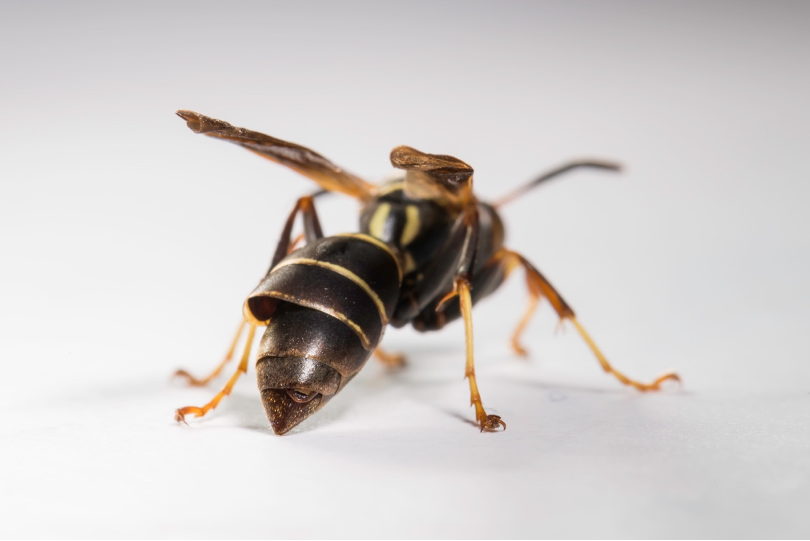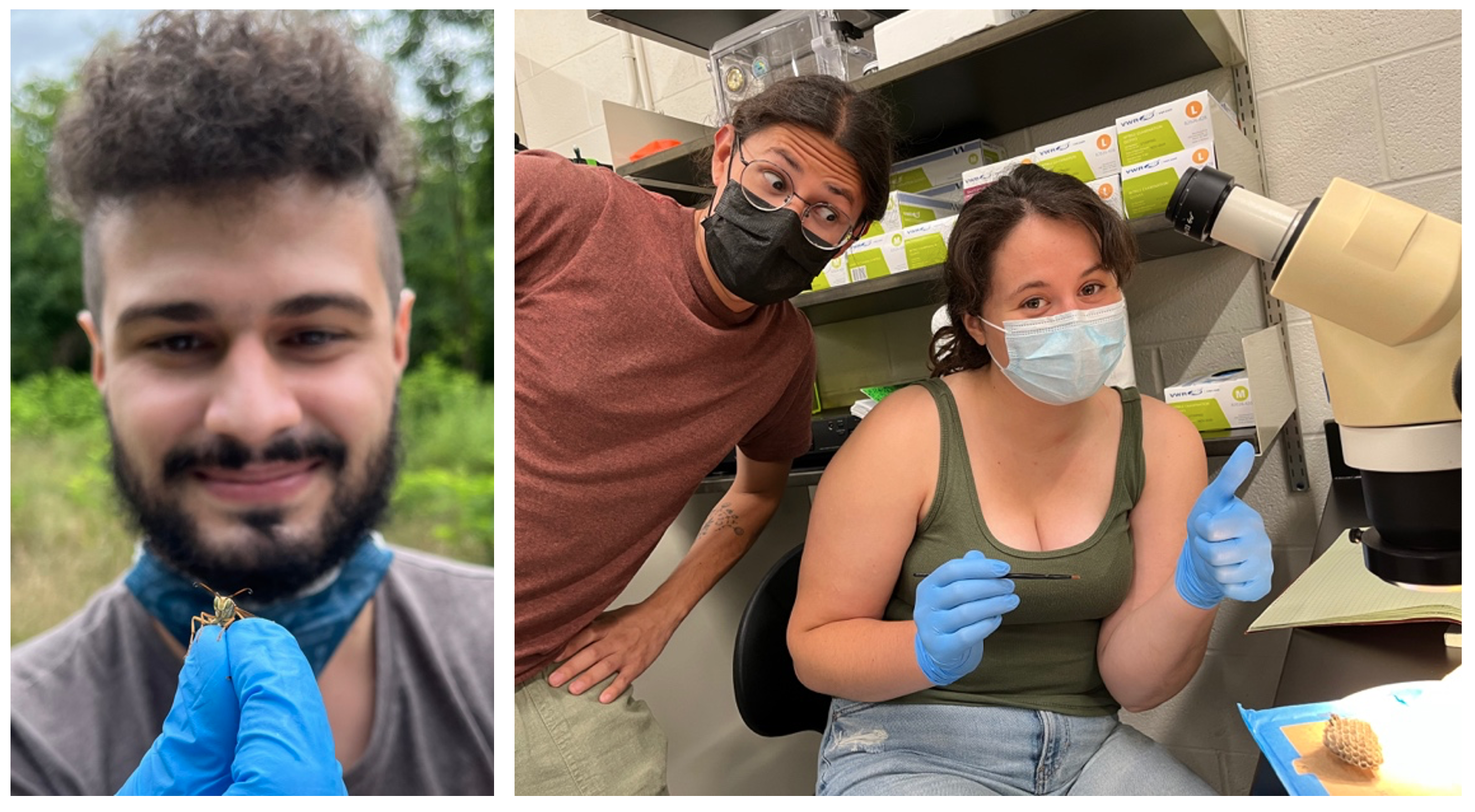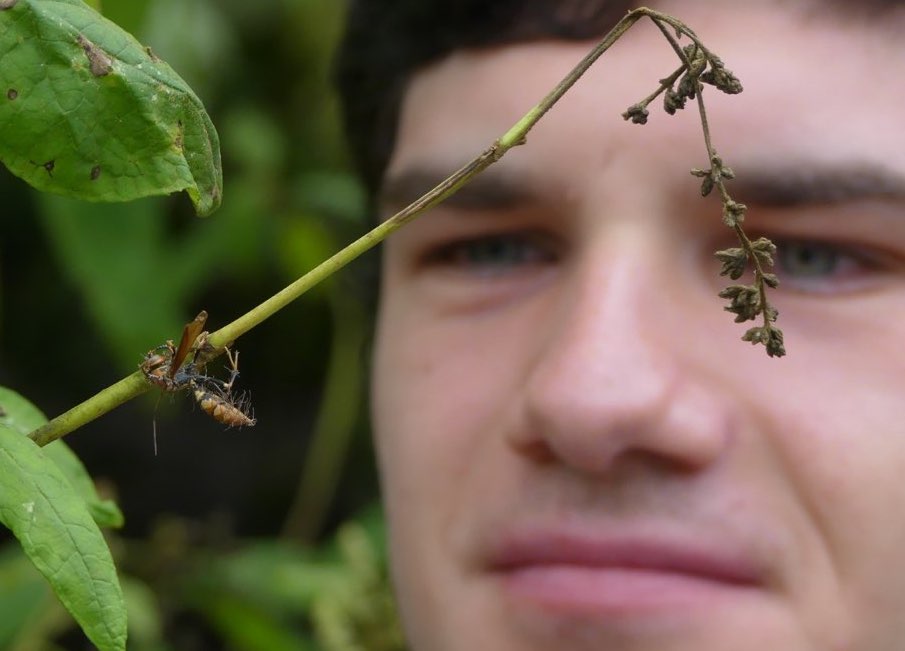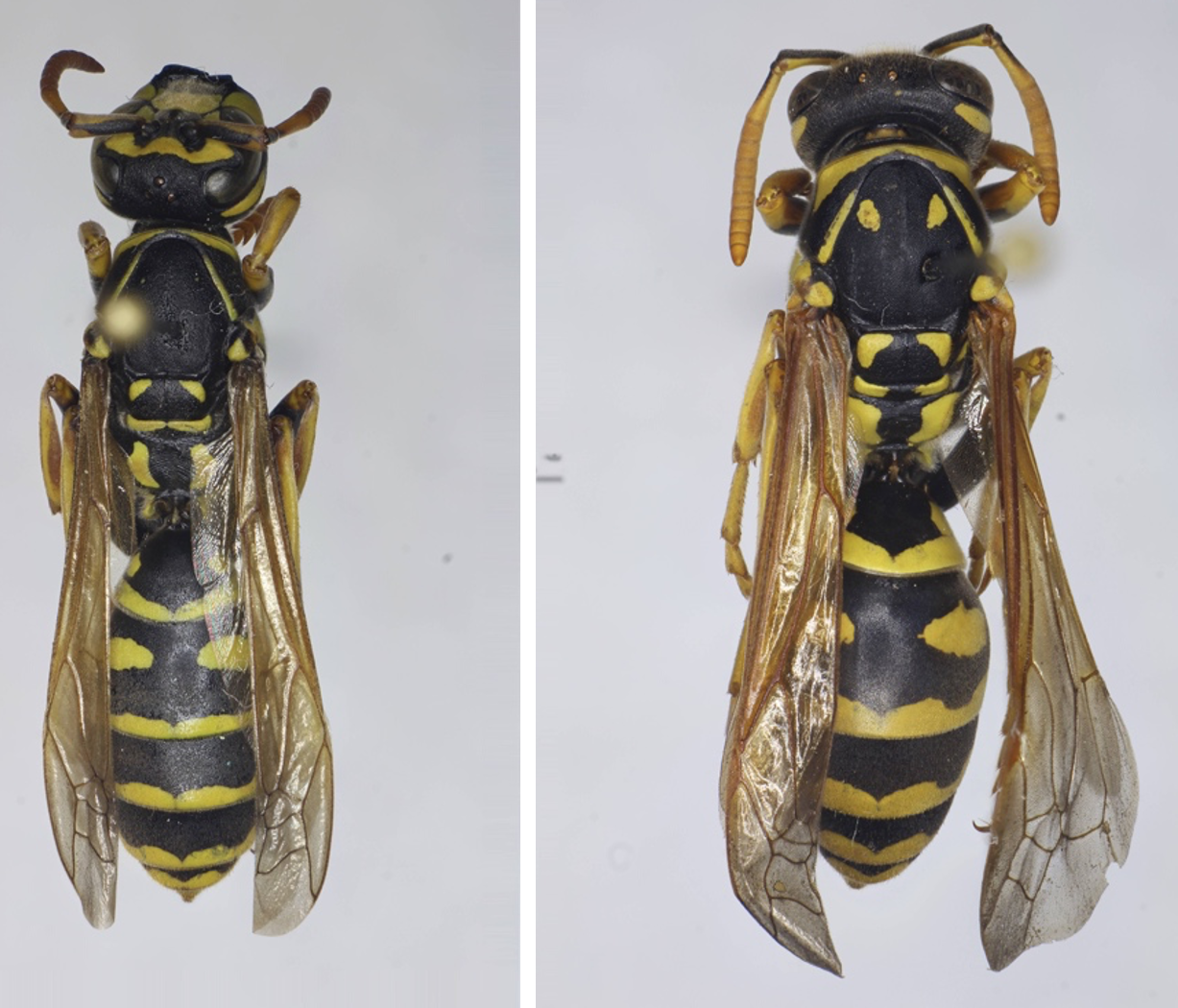
| |
| Home |
| Research |
| Teaching |
| People |
| Publications |
| Mentoring |
| Outreach |
| ROC Galapagos |
| Contact |
RESEARCH |
| Manipulation of Social Insects by Parasites |
Host and parasite species are in a coevolutionary arms race in which parasites exploit the host for fitness benefits, while the host evolves defense mechanisms. While behavioral responses in the host that are induced by parasites have been widely studied, less is known about the effect of parasites in the brain of social hosts, and the molecular underpinnings of these manipulatins. Below are projects that explore the co-evolutionary arms race between parasite and host.
Project 1: Why do some individuals live longer and maintain better cognitive functions than others? Scientists have extensively studied the general role of genes in development of the brain, but we know much less about the specific genetic pathways that regulate robust brains needed for extended lifespans. In our laboratory, we study a fascinating study system of wasps that depend on social interactions with their colony members, similar to human societies. Queen wasps can live over a year, while workers only live for a few weeks. Remarkably, these wasps can be infected by a parasite that develops inside the worker’s body, causing the once short-lived workers to now have extended lifespans similar to queens. Due to seasonality differences, the parasite can’t infect queens, so instead target the workers, which start showing asocial behavior after being infected. Therefore, our research takes advantage of this unique host and parasite system to understand how the parasite controls the genes responsible for changes in behavior and physiology, with a special focus on changes in brain function that facilitate extended longevity. Given the strong parallels of our system to other social animals, including humans, we study which genes are involved in causing pathological behavior and changes in lifespan, with clear implications for combating aging and diseases that involve neurodegeneration.

Above, a Northern paper wasp is infected by a male parasite that emerged as a free flying adult (hole in abdomen), and a female parasite which will remain inside the wasp (sticking out of the abdomen). Image by J. Adam Fenster (University of Rochester). Rafael Carvahlo da Silva, a former visiting Ph.D. student from the University of São Paulo (now a postdoctoral fellow in Toulouse), led this effort to elucidate the neuromodulation mechanisms by these parasitic insects. Undergrad researchers Maggie Kane and Federico Sánchez-Vargas worked together to determine behavioral manipulation by the parasite and the recognition mechanisms used to infect the correct host. They ran behavioral trials and experimental infections in the parasite’s native wasp host (Polistes fuscatus), and the invasive European wasp (Polistes dominula). On-going projects are being led by wonderful U of R undergraduate students highlighted on the People page of our lab group.

Above left, Rafael is holding an infected Northern paper wasp in its natural habitat. Above right, Fede and Maggie successful infects wasp larvae inside their nest (bottom right corner). |
News piece by the U of R News Center on our research: "Paper wasp parasites turn hosts into long-lived ‘zombies’ " Publications: Former MS. Student Kristine Gandia explored the role of a closely-related parasite in the brain architecture of its social host in collaboration with Federico Cappa, David Baracchi, and Laura Beani, at the University of Florence. The work is published in Frontiers in Ecology & Evolution. |
Project 2: Former Undergrad extraordinaire Alli Rozanski examined brain investment in a host-social wasp parasite system, in collaboration with Alessandro Cini at UCL and Rita Cervo at the University of Florence. |
To the left, social parasite Polistes semenowi (formerly Polistes sulcifer) and its social host Polistes dominula to the right (images by Marco Selis) |
Publications: Allie's work is published in the Journal of Comparative Neurology . |
Project 3: Finally, we are exploring manipulation by an Ophiocordyceps fungus that attacks an invasive Polistes wasp in the Galapagos. This work is in collaboration with Charissa De Bekker at University of Central Florida and João Araujo at the University of Florida. ROC Galapagos students are working on this project this semester!

Above , Joe Krell, member of the Uy Lab and part of the first cohort of ROC Galapagos, observes a parasitezed Polistes paper wasp in Floreana Island. |
| . |
| . |
| . |
| BACK TO RESEARCH PAGE |
